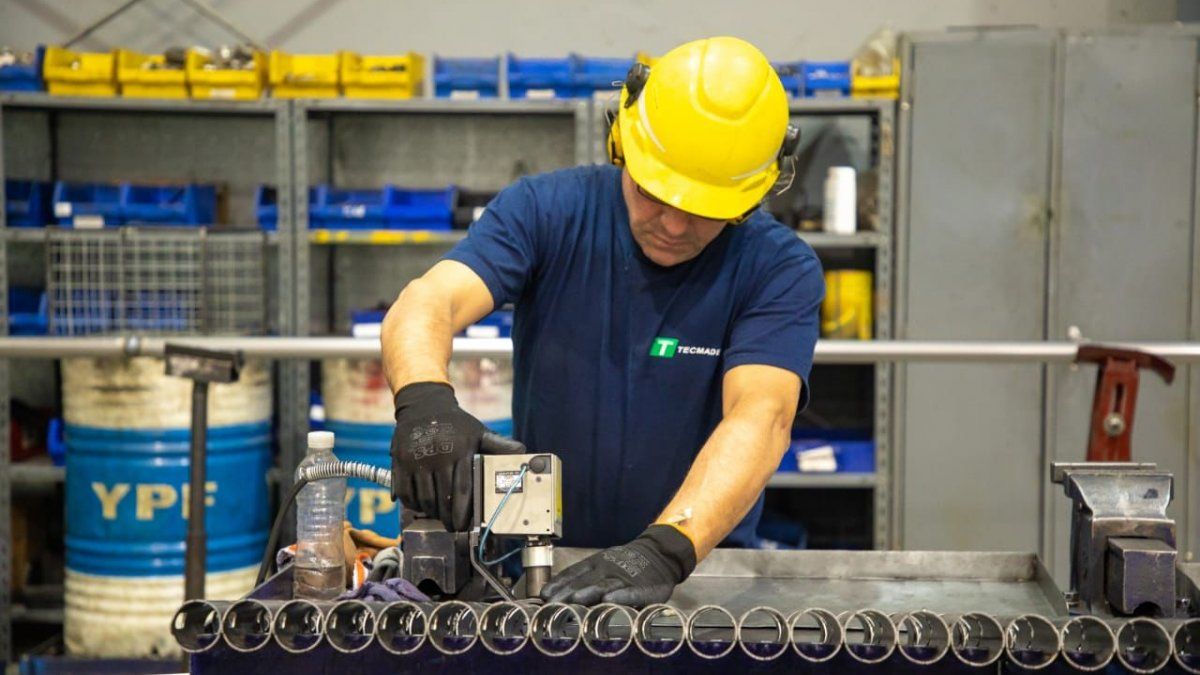Exports from SMEs grew 23.5%, reaching US$7,369 million, which represents 12.2% of the total exported by Argentina in the January-September 2024 period. This week the Government confirmed that it will launch a RIGI for SMEs.
In volume, they exported 6.4 million tons, 33.5% more than the first 9 accumulated months of 2023. With these values, small and medium-sized companies exported, on average, US$1,146 per ton.
Of the 6,095 companies that exported in this period, 4,179 are SMEs; That is to say, in said period 68.6% of the operators are SMEs.
This is how it arises from SME Export Monitor (MEP), an indicator prepared by the Statistics and Reports sector of the Argentine Confederation of Medium Enterprises (CAME), to measure the exports of small and medium-sized companies in the Argentine Republic, based on the monthly monitoring of the operations of Argentine companies in foreign trade.
What are the items that are most exported?
The MEP analyzes 16 items that group tariff positions from chapter 1 to 99 of the Mercosur Common Nomenclature, amendment 2024. In the first 9 months of the year, 3 of the 16 items analyzed showed falls, with tobacco and derivatives being the item with the greatest decrease (-37.1% ).
On the other hand, the item with the greatest growth in dollars was miscellaneous manufacturing (+1,608.8%), while in tons, the greatest increase occurred in the oil and fuels item (+240.5%), while that the biggest drop also occurred in tobacco and derivatives (-32.7%).
The main item exported by the country’s SMEs was unprocessed food, representing 50.9% of the total exported.
According to CAME, although this is positive in terms of volume, it reflects a loss of added value, since by not processing these foods before exporting them, opportunities to generate greater income and jobs are lost.
Local processing allows more value to be captured in the production chain by involving activities such as product transformation and improvement, which usually requires more technology and specialized labor.
If the complex SME exporters are disaggregated into their component tariff positions, It is observed that the main exported product is fresh pears in immediate packaging of net content greater than 2.5 kg and less than or equal to 20 kg (0808.30.00.920Y), representing 3% of the total exported by SMEs, followed by squid, shrimp, soybeans and peanuts, all of these products without processing or industrialize.
32.9% (US$2,424.7 million) of the exports of Argentine SMEs had South America as the main destination, with Brazil and Chile standing out as the main partners (US$1,540 million).
The second most relevant continent for Argentine small and medium-sized companies is Europe (24.1%), where the Netherlands, Spain and Italy are the main trading partners (US$830.1 million).
Of the more than 198 possible export destinations for Argentine SMEs, 20 countries concentrate more than 79.1% of the operations (US$5,827.3 million).
A RIGI for SMEs is expected
The Secretary of Industry, Juan Pazo, confirmed that the Government is going to launch a General Incentive Regime for Large Investors (RIGI) for SMEs. He said it will be for “incremental” investments and will include accelerated amortization.
“We are working on a productive investment regime with accelerated amortization and a specific VAT regime”, Pazo pointed outjust as Ambito anticipated, in a public talk he had with the president of the Argentine Chamber of Steel (ACERO), Martín Berardi, at the close of the international meeting.
The official announced that the benefits expected for the SMEs that enter the future scheme “will be for incremental investments“because in this way it would avoid affecting the government’s current tax revenues, while indicating that one of the sectors that can benefit from this will be agricultural machinery.
Despite coming from a government in which trade openness and market policies are being valued, Pazo said he “shares the view” that the steel sector has regarding the agenda for the Argentine industry in particular and for the sector at the regional level.
For now, although he did not anticipate that Javier Milei’s government will implement protection measures as requested by industrialists, he expressed that “Any fiscal improvement that there is will be used to reduce taxes.”which is one of the elements demanded by the productive sector.
Source: Ambito
David William is a talented author who has made a name for himself in the world of writing. He is a professional author who writes on a wide range of topics, from general interest to opinion news. David is currently working as a writer at 24 hours worlds where he brings his unique perspective and in-depth research to his articles, making them both informative and engaging.




